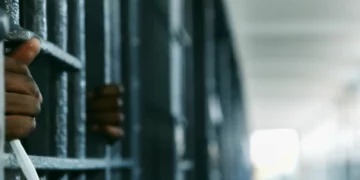A non-governmental organisation (NGO), Plan International has said of all the things that occurred over the years, the year 2025 is one of the worst years for humanitarians, starting from the funding cuts being experienced to the issues around where humanitarian workers are deliberately targeted and killed in places like Gaza, among others.
The director of Programme Quality and Influencing, Plan International, Dr Helen Mfon-Obong Idiong, made the assertion yesterday during the commemoration of the 2025 World Humanitarian Day with the theme ” Strengthening Global Solidarity and Empowering Local Communities,” in Maiduguri, the Borno State capital.
World Humanitarian Day marks the anniversary of the 2003 bombing of the UN headquarters in Baghdad, which claimed the lives of 22 humanitarian workers, including Sérgio Vieira de Mello.
In the present day, humanitarian workers continue to face unprecedented risks, with over 150 aid worker deaths reported in conflict zones in 2025 alone. World Humanitarian Day is crucial to Plan International Nigeria as it honours humanitarian workers, raises awareness about humanitarian issues like climate change and conflict, advocates for support and protection, promotes humanitarian principles, and showcases the organisation’s impact in empowering girls and children in crisis-affected areas. By observing this day, Plan International Nigeria reaffirms its commitment to humanitarian action and advocacy for a more just and equitable world.
“For the fact that the need is not reducing and then people also do not even understand what humanitarianism is about , it’s very important that we raise awareness, taking our one day to also let the world know that yes, we still have a humanitarian crisis.
“When there’s a need like this , when there’s a gap due to reduced funding, it’s an opportunity for the government to come in and play its part. In terms of nutrition, there was an estimation that had been made based on people that were really in need.
Well, because of the funding cuts, agencies had to go back and cut the cuts again. So it has happened that most of the people, like 70% of those who should ideally have been served in 2025 are not going to be served because of the funding available.
” It has led to the closure of health facilities and other places like that. Before now , we had limited funding and we’re even looking at, okay, how do we reach? I think it was five million people that were estimated to be in need for nutrition alone, but now, we’re looking at just about two million of that to support,” Dr Idiong said.
Also speaking, Ruth Ishaya, the Youth Engagement and Sexual Productive Health Officer at Plan International, said that in giving support to youths, Plan International established livelihood incubation centres at Kaleri, which is in Mafa, and Demboa, whereby youths are being trained on skill acquisitions and good agricultural practices and how to learn modern agriculture.
” After the training, we supported the youth with startup capital. It’s more like a start-up kit, whereby they set up a business and then with mentorship. We have supported over 240 youths in this implementation, and apart from that, we reach almost over 600 beneficiaries in cash and virtual assistance to enhance the level of food security in the communities,” she said.
Head of Humanitarian Programme Plan International, Emmanuel Nuhu, said the 2025 World Humanitarian Day is reflecting on the current challenges that they are having as humanitarian aid workers and also paying respects to those who have paid the supreme price ,adding that humanitarian workers have passed in the course of implementing interventions across different locations worldwide.
In his keynote address, the director general of Borno State Agency for Great Green Wall ( BSAGGW), Engr Aliyu Usman, who embarked on tree planting with Plan International as part of the activities marking the World Humanitarian Day, said the exercise aims to emphasise the critical link between climate action and humanitarian responsibility, inspiring collective action to protect vulnerable communities and promote sustainable development.
He said the tree planting activity promotes environmental sustainability, supports climate action, and fosters collaboration between Plan International and BSAGGW, contributing to a greener and more resilient community.
He said distributing visibility materials effectively promotes Plan International’s humanitarian work, raises awareness about climate action, and increases the organisation’s visibility among stakeholders and the public.
We’ve got the edge. Get real-time reports, breaking scoops, and exclusive angles delivered straight to your phone. Don’t settle for stale news. Join LEADERSHIP NEWS on WhatsApp for 24/7 updates →
Join Our WhatsApp Channel










